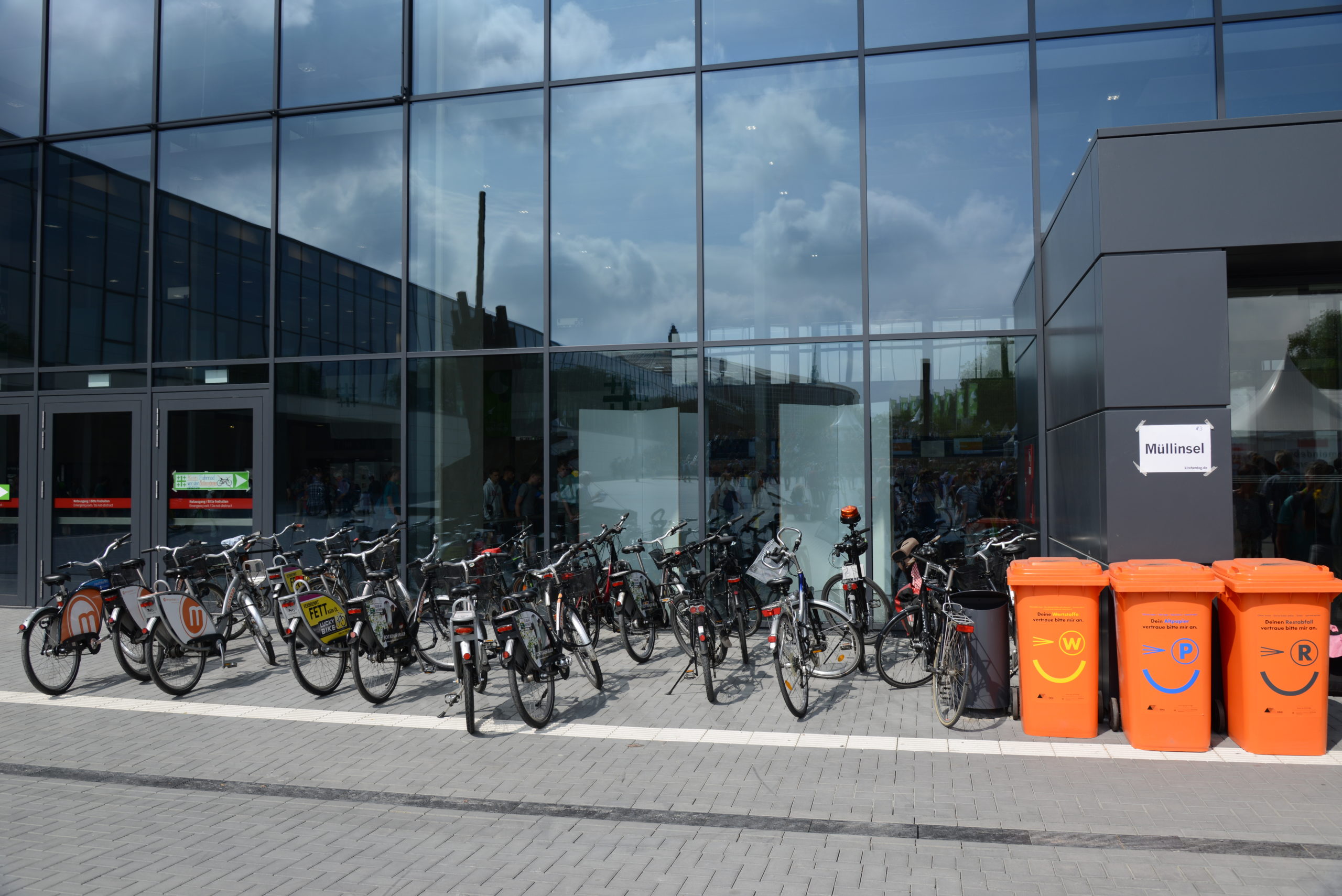
Reduce emissions from motorised transport
Concretisation of the measure
In order to prevent high ozone concentrations in the ambient air of the event area, it is advisable to keep air pollution and thus the formation of ozone precursor substances low. This can be done by avoiding rather stationary sources, such as machines (generators, gardening tools), but especially by reducing the number of journeys by vehicles with combustion engines. In this way ozone precursor substances can be reduced on sunny summer days.
Preparation within the framework of Kirchentag in Dortmund
The Kirchentag is the environmentally friendly major event in Germany. So for many years now we have been helping to shift and improve motorised private transport through a variety of measures.
During the implementation of the Kirchentag in Dortmund
For example, the admission ticket is valid as a local transport ticket for a large area before, after and during the event. Parking spaces for visitors are not shown in the app or on the Kirchentag map.
Environmental/climate protection aspect
The environmental management of the Kirchentag documents a large number of measures for traffic avoidance and modal shift. Partnerships with mobility service providers and a good information policy, are part of the fact, that the event was able to achieve a very good modal split in travel. However, traffic avoidance explicitly designed for ozone has not taken place.
Climate adaptation aspect
As there will be more and longer heat waves in the future, which will also be accompanied by strong solar radiation, more ozone weather conditions are to be expected.
Cost/benefit/effort
In this context high benefits can already be achieved with little effort, since synergies with other areas exist. It is important to consider the goal of shifting participants’ to travel with other means of transport and a high occupancy rate for the remaining vehicles, already in the early phase of event planning.
» Back




